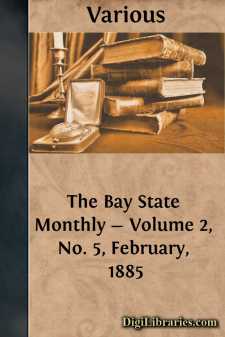Categories
- Antiques & Collectibles 13
- Architecture 36
- Art 48
- Bibles 22
- Biography & Autobiography 816
- Body, Mind & Spirit 145
- Business & Economics 28
- Children's Books 17
- Children's Fiction 14
- Computers 4
- Cooking 94
- Crafts & Hobbies 4
- Drama 346
- Education 58
- Family & Relationships 59
- Fiction 11834
- Foreign Language Study 3
- Games 19
- Gardening 17
- Health & Fitness 34
- History 1378
- House & Home 1
- Humor 147
- Juvenile Fiction 1873
- Juvenile Nonfiction 202
- Language Arts & Disciplines 89
- Law 16
- Literary Collections 686
- Literary Criticism 179
- Mathematics 13
- Medical 41
- Music 40
- Nature 179
- Non-Classifiable 1768
- Performing Arts 7
- Periodicals 1453
- Philosophy 66
- Photography 2
- Poetry 897
- Political Science 203
- Psychology 45
- Reference 154
- Religion 516
- Science 126
- Self-Help 85
- Social Science 82
- Sports & Recreation 34
- Study Aids 3
- Technology & Engineering 59
- Transportation 23
- Travel 463
- True Crime 29
Our website is made possible by displaying online advertisements to our visitors.
Please consider supporting us by disabling your ad blocker.
The Bay State Monthly - Volume 2, No. 5, February, 1885
by: Various
Categories:
Description:
Excerpt
WILLIAM GASTON.
By ARTHUR P. DODGE.
Victor Hugo has written: "The historian of morals and ideas has a mission no less austere than that of the historian of events. The latter has the surface of civilization, the struggles of the crowns, the births of princes, the marriages of Kings, the battles, the assemblies, the great public men, the revolutions in the sunlight, all exterior; the other historian has the interior, the foundation, the people who work, who suffer and who wait ... Have these historians of hearts and souls lesser duties than the historian of exterior facts?"
There is much unwritten history of the Bay State: of the exterior, much is recorded; of the interior, far less. Both are valuable to posterity. It is believed that succeeding ages will hold of far greater value, and the youth of our day be benefitted more by the study of the underlying principles and causes of those events which are given a conspicuous place in history, rather than by the mere record of the surface facts.
It is profitable to study the habits and methods of individuals who stand out in bold relief in history. To derive the greatest interest and value from such lives it is well to follow them from early childhood. Indeed it is profitable to trace back the ancestry and lineage from which the man has descended, to study the characteristics peculiar to each generation, and to note the result of racial mixtures tending to the typical and representative American of to-day.
Many prominent men received their first incentive to ambition and industry and perseverence by reading—when their minds were immature, but fresh and retentive—of the life and achievements of Benjamin Franklin and such other grand models for the young.
No history of a country or state is complete without studies of the lives of those men who have made and are making history.
William Gaston comes from an honored and distinguished ancestry on both his paternal and maternal side as will be seen by the succeeding genealogical notes.
He was born at Killingly, Connecticut, October 3, 1820.
GENEALOGY.
Jean Gaston was born in France, probably about the year 1600. There are traditions about the particular family to which he belonged, but only little is definitely known. He was a Huguenot, and is said to have been banished from France on account of his religion. His property was confiscated. His brothers and family, although Catholics, sent money to him in Scotland for his support. He is said to have been forty years of age and unmarried when he went to Scotland. Between 1662 and 1668, during a season of persecution in Scotland, his sons, John, William, and Alexander, went over into the north of Ireland, whither many of their friends were fleeing for safety and religious freedom. There is some uncertainty as to which of these three brothers was the founder of this branch of the family, but numerous facts point almost conclusively to John as such founder. One generation was born in Ireland.
John Gaston had three sons born in Ireland: William, born about 1680; lived at Caranleigh Clough Water; John, born 1703-4, died in America 1783; Alexander, born 1714, died in America....












